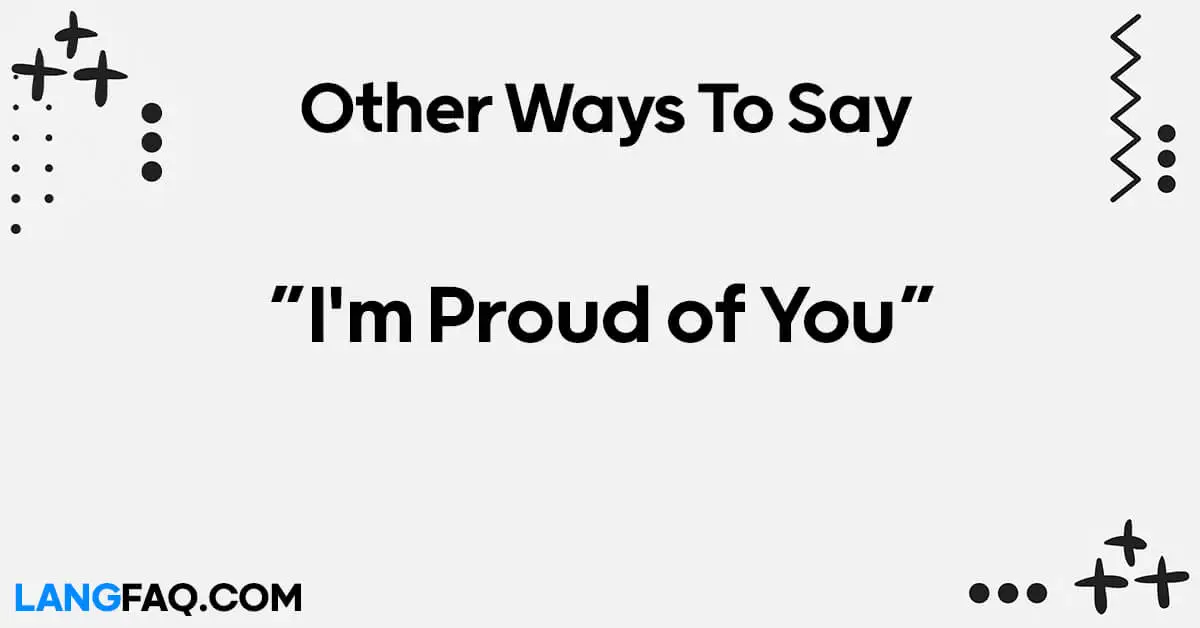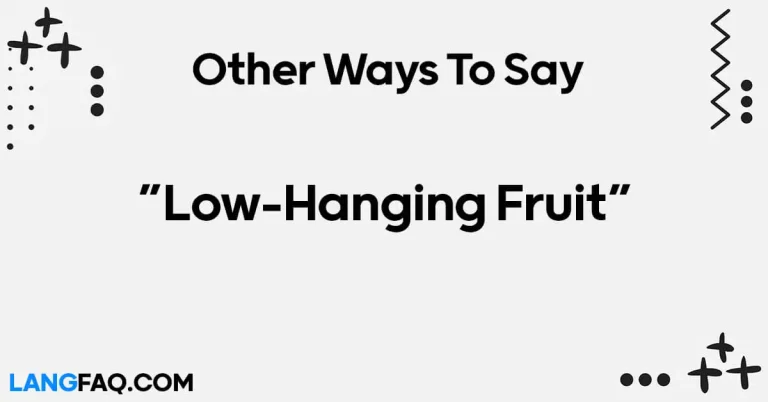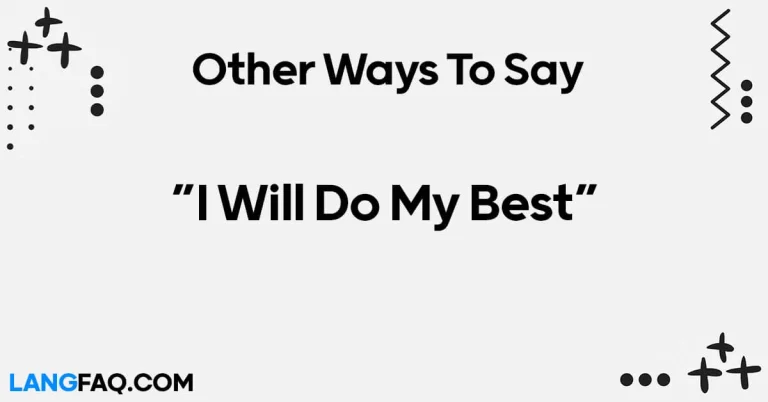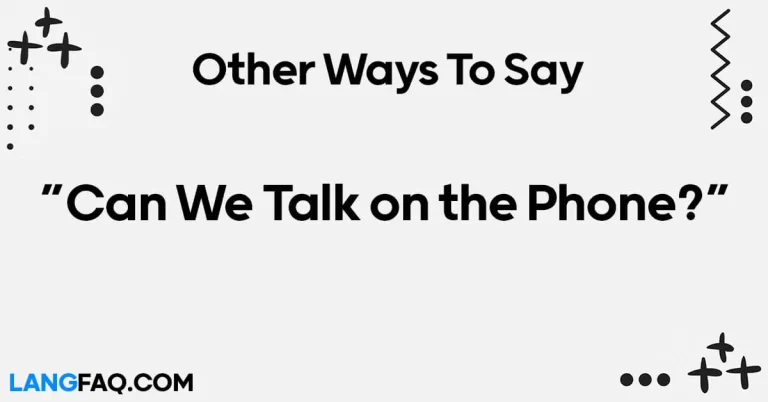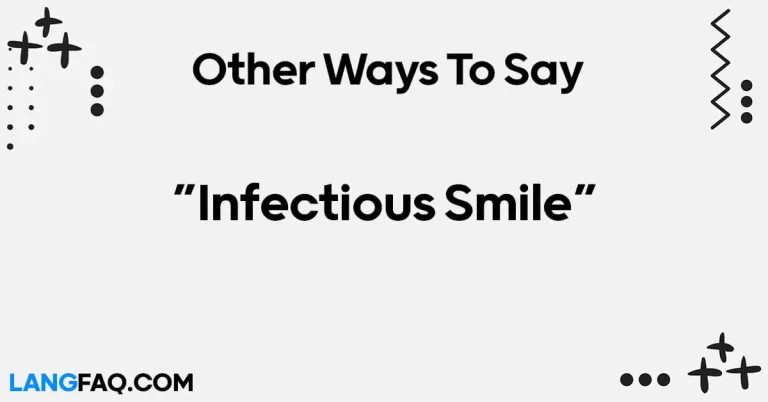Expressing pride is a fundamental aspect of human connection, fostering positive relationships and personal growth. In this article, we delve into the various dimensions of conveying pride, exploring cultural differences, verbal alternatives, non-verbal expressions, and the profound impact it has on mental health.
12 Other Ways to Say “I’m Proud of You”
Here are 12 alternative ways to express “I’m Proud of You”:
- Well done!
- Congratulations!
- You’ve truly excelled!
- Exceptional job!
- Outstanding performance!
- Bravo on your achievement!
- I applaud your success!
- You make me proud!
- Hats off to you!
- You’ve done us proud!
- Kudos on your accomplishment!
- I’m impressed with your efforts!
Alternative Expressions for “I’m Proud of You”
| Expression | Meaning | Example |
|---|---|---|
| Well done! | Acknowledging a job done excellently | “Well done on completing the project ahead of schedule.” |
| Congratulations! | Offering praise for a significant achievement | “Congratulations on winning the competition!” |
| You’ve truly excelled! | Recognizing exceptional performance | “You’ve truly excelled in your academic endeavors.” |
| Outstanding performance! | Highlighting an exceptionally well-executed task | “Your presentation was an outstanding performance.” |
| Bravo on your achievement! | Celebrating a noteworthy accomplishment | “Bravo on your achievement in the sports competition!” |
| I applaud your success! | Showing admiration for successful outcomes | “I applaud your success in landing the new job.” |
| You make me proud! | Expressing personal pride and happiness | “Your achievements make me proud as a parent.” |
| Hats off to you! | Conveying admiration and respect | “Hats off to you for completing the marathon in record time.” |
| You’ve done us proud! | Indicating collective pride in someone’s accomplishment | “You’ve done us proud with your contributions to the team.” |
| Kudos on your accomplishment! | Offering praise and congratulations | “Kudos on your accomplishment in the business project.” |
| I’m impressed with your efforts! | Commending hard work and dedication | “I’m impressed with your efforts to learn a new skill.” |
Expressing pride comes in various forms, and this table provides alternative phrases to convey admiration and celebration. Whether it’s saying “Well done!” or expressing personal pride with “You make me proud,” these alternatives offer diverse ways to acknowledge and appreciate achievements. Choose the expression that resonates best with the situation and adds a positive touch to your affirmations.
Is It Correct to Say “I’m Proud of You”?
Absolutely, saying “I’m proud of you” is a positive and affirming expression. This phrase is commonly used to convey admiration, encouragement, and a sense of accomplishment. It is a way of expressing your emotional support and recognition for someone’s achievements, efforts, or personal growth.
“I’m proud of you” is often used in various contexts, including:
- Achievements: When someone accomplishes a goal or succeeds in a particular endeavor, expressing pride is a natural response. For example, if a friend graduates from college, excels in a project, or achieves a personal milestone, saying “I’m proud of you” communicates your happiness and admiration for their success.
- Personal Growth: Acknowledging someone’s personal development and growth is another appropriate use of this phrase. If someone has overcome challenges, displayed resilience, or worked on self-improvement, expressing pride shows your appreciation for their journey.
- Effort and Determination: Even when the outcome is not a complete success, acknowledging the effort and determination someone has put into a task is meaningful. Saying “I’m proud of you for trying your best” or “I’m proud of your hard work” highlights the value of the journey, not just the result.
- Support and Encouragement: Expressing pride is a way of providing emotional support and encouragement. It reinforces positive behavior, boosts confidence, and strengthens interpersonal relationships.
However, it’s crucial to consider the context and the individual’s preferences. While “I’m proud of you” is generally positive, some people may prefer different expressions or find praise in other forms. It’s always a good idea to be mindful of how your words might be received and to tailor your expressions of pride to the specific situation and person.
Professional Mail Example With “I’m Proud of You”
Subject: Congratulations on Your Exceptional Achievement!
Dear [Recipient’s Name],
I trust this message finds you well. I am writing to extend my heartfelt congratulations on your recent accomplishment. Your dedication and hard work have truly paid off, and I want you to know how proud I am of you.
In [briefly describe the achievement or context, e.g., completing the project ahead of schedule, securing the new client, etc.], you have not only demonstrated your professional expertise but also showcased a level of commitment that is truly commendable.
Your contributions have been integral to the success of [specific project or task], and it’s inspiring to witness your continual growth and excellence in your role. The effort and determination you consistently bring to your work are noteworthy, and they undoubtedly contribute to the positive atmosphere within our team.
“I’m proud of you” may seem like a simple phrase, but it carries a depth of appreciation and recognition for your outstanding performance. Your achievements reflect not only your capabilities but also your commitment to upholding the highest standards of our team.
Once again, congratulations on this well-deserved success. Your accomplishment is a testament to your skills and dedication, and I look forward to witnessing your continued excellence in all your future endeavors.
If there is anything you would like to share or discuss further, please feel free to reach out. Your success is a source of pride for the entire team.
Wishing you continued success and looking forward to more achievements from you in the future.
Warm regards,
[Your Full Name] [Your Position] [Your Company]
Well Done!
When it comes to expressing admiration for a job excellently done, “Well Done!” stands out as a classic phrase that effortlessly conveys appreciation. This versatile expression can be used in both formal and informal contexts, making it suitable for various relationships and situations.
Usage in a Professional Setting
In a professional environment, using “Well Done!” is a simple yet effective way to acknowledge a colleague’s outstanding performance on a project. It can be shared in team meetings or included in an email to recognize individual contributions.
Example Sentence: “Well done on successfully leading the project team to meet tight deadlines. Your dedication and efficiency are truly commendable.”
Email Sample:
Subject: Acknowledgment of Outstanding Performance
Dear [Colleague’s Name],
I wanted to take a moment to extend my sincere appreciation for your exceptional work on the recent project. Well done! Your commitment to excellence has not gone unnoticed, and your contributions have significantly elevated the team’s success.
Best regards, [Your Name]
Usage in a Personal Context
On a more personal note, “Well Done!” is a fantastic way to celebrate achievements with friends or family. Whether it’s acing an exam, completing a DIY project, or achieving a personal goal, this phrase communicates genuine joy and pride.
Example Sentence: “Well done on finishing the marathon! Your determination and hard work truly paid off.”
Dialogue Snippet: Friend 1: “I finally completed my novel!” Friend 2: “Well done! That’s an incredible accomplishment.”
Variations for Different Relationships
- Colleagues: “Great job on the presentation!”
- Friends: “Awesome cooking skills! Well done on the delicious meal.”
- Mentor to Mentee: “Well done on grasping the complex concepts. Your progress is impressive.”
Dictionary Insight: Cambridge Dictionary defines “well done” as an expression used to praise someone for something they have achieved.
Tip: Ensure the tone and enthusiasm match the level of accomplishment. Reserve this phrase for notable achievements to maintain its impact.
Pros:
- Universally positive and encouraging.
- Suitable for various contexts and relationships.
Cons:
- May become less impactful if overused for minor accomplishments.
Congratulations!
“Congratulations!” is more than just a word; it’s a powerful expression of joy and celebration. This phrase is versatile, suitable for both formal and informal situations, and carries a sense of genuine happiness for someone’s success.
Usage in a Professional Setting
In a professional context, “Congratulations!” is often used to mark significant milestones, promotions, or successful project completions. It’s an excellent way to express shared joy within a team or organization.
Example Sentence: “Congratulations on being promoted to the position of [Job Title]. Your hard work and dedication have truly paid off.”
Email Sample:
Subject: Heartiest Congratulations on Your Promotion!
Dear [Recipient’s Name],
I am delighted to extend my heartfelt congratulations on your well-deserved promotion. Your achievements are a testament to your commitment and expertise. Wishing you continued success in your new role!
Best regards, [Your Name]
Usage in a Personal Context
On a personal level, saying “Congratulations!” adds warmth and sincerity to moments of joy and accomplishment. Whether it’s a graduation, engagement, or any personal achievement, this phrase communicates genuine happiness.
Example Sentence: “Congratulations on your graduation! Your perseverance and hard work have led to this well-deserved success.”
Dialogue Snippet: Family Member: “I got the job!” You: “Congratulations! That’s fantastic news!”
Variations for Different Relationships
- Colleagues: “Congratulations on the successful project completion!”
- Friends: “Congratulations on your engagement! Wishing you a lifetime of happiness.”
- Mentor to Mentee: “Heartfelt congratulations on completing your internship. Your growth has been remarkable.”
Dictionary Insight: According to Merriam-Webster, “congratulations” is an expression of pleasure or joy on account of success or good fortune.
Tip: Personalize the congratulatory message by mentioning specific details about the achievement.
Pros:
- Evokes a sense of shared joy.
- Appropriate for various achievements and occasions.
Cons:
- May sound overly formal in very casual situations.
You’ve Truly Excelled!
When you want to convey a deeper level of admiration for exceptional performance, “You’ve Truly Excelled!” serves as a sophisticated and impactful phrase. This expression is perfect for situations where standard praise might fall short.
Usage in a Professional Setting
In a professional context, using “You’ve Truly Excelled!” can be a powerful way to recognize an individual’s outstanding contributions. It is particularly effective in formal communications such as performance reviews or congratulatory messages for significant accomplishments.
Example Sentence: “In this quarter, you’ve truly excelled in meeting and surpassing project targets. Your dedication and expertise have set a new standard for the team.”
Email Sample:
Subject: Acknowledgment of Exceptional Performance
Dear [Colleague’s Name],
I wanted to express my sincere appreciation for your exceptional contributions to the team. You’ve truly excelled in your role, and your impact has been instrumental in our recent successes.
Best regards, [Your Name]
Usage in a Personal Context
On a personal level, using this phrase adds a touch of elegance to your compliments. It’s suitable for acknowledging achievements such as mastering a skill, completing a challenging task, or demonstrating exceptional talents.
Example Sentence: “Your piano performance at the concert was outstanding. You’ve truly excelled in showcasing your musical talent.”
Dialogue Snippet: Friend 1: “I aced the exam!” Friend 2: “You’ve truly excelled! Your hard work is paying off.”
Variations for Different Relationships
- Colleagues: “You’ve truly excelled in leading the team. Your leadership is commendable.”
- Friends: “Your artwork is incredible. You’ve truly excelled in capturing emotions on canvas.”
- Mentor to Mentee: “In your research project, you’ve truly excelled. Your dedication to exploring new avenues is commendable.”
Dictionary Insight: Oxford Languages defines “excel” as to be exceptionally good at or proficient in an activity or subject.
Tip: Use this phrase sparingly for achievements that truly stand out to maintain its impact.
Pros:
- Conveys a high level of admiration and praise.
- Suitable for both professional and personal contexts.
Cons:
- May sound overly formal in very informal settings.
Outstanding Performance!
“Outstanding Performance!” is a phrase that not only acknowledges success but elevates it to a level of excellence. It’s a powerful way to recognize achievements that go above and beyond expectations.
Usage in a Professional Setting
In professional environments, especially during evaluations or project assessments, using “Outstanding Performance!” emphasizes the exceptional nature of an individual’s contributions. It is a fitting way to commend someone for consistently exceeding expectations.
Example Sentence: “Your leadership in the last quarter has been marked by outstanding performance. Your ability to inspire the team has significantly contributed to our success.”
Email Sample:
Subject: Recognition for Outstanding Performance
Dear [Employee’s Name],
I am pleased to recognize and commend your outstanding performance during the recent project. Your dedication, attention to detail, and leadership have truly set a standard for excellence.
Warm regards, [Your Name]
Usage in a Personal Context
On a personal note, when someone achieves something remarkable, telling them it’s an outstanding performance adds an extra layer of enthusiasm and appreciation.
Example Sentence: “Your speech at the conference was an outstanding performance. Your ability to engage the audience was truly impressive.”
Dialogue Snippet: Family Member: “I won the competition!” You: “Outstanding performance! Your hard work paid off, and I’m incredibly proud.”
Variations for Different Relationships
- Colleagues: “The team’s collaboration resulted in an outstanding performance. Your collective efforts are commendable.”
- Friends: “Your cooking skills are unmatched. Each dish is an outstanding performance.”
- Mentor to Mentee: “In your research project, you’ve showcased outstanding performance. Your dedication to excellence is commendable.”
Dictionary Insight: According to Collins English Dictionary, “outstanding” describes something that is clearly better than what is usual, expected, or typical.
Tip: Pair this phrase with specific details about the outstanding performance to make the acknowledgment more impactful.
Pros:
- Elevates praise to a level of excellence.
- Suitable for recognizing consistent high performance.
Cons:
- Might be too formal for casual situations.
Bravo on Your Achievement!
“Bravo on Your Achievement!” is a sophisticated and cultured expression, conveying admiration and celebration for noteworthy accomplishments. This phrase carries a touch of elegance, making it suitable for formal occasions and significant achievements.
Usage in a Professional Setting
In professional contexts, where achievements deserve a refined acknowledgment, using “Bravo on Your Achievement!” adds a touch of professionalism. It’s particularly effective when recognizing accomplishments that contribute significantly to the organization.
Example Sentence: “Bravo on your achievement in securing the new client. Your strategic approach and negotiation skills were commendable.”
Email Sample:
Subject: Bravo on Your Achievement!
Dear [Recipient’s Name],
I wanted to extend my heartfelt congratulations on your recent achievement. Bravo! Your dedication and accomplishments bring great pride to our team.
Best regards, [Your Name]
Usage in a Personal Context
In personal relationships, especially when acknowledging someone’s personal or artistic achievements, using “Bravo on Your Achievement!” reflects genuine admiration and sophistication.
Example Sentence: “Bravo on your achievement in completing the art exhibition. Your talent and creativity were truly showcased.”
Dialogue Snippet: Friend 1: “I published my first book!” Friend 2: “Bravo on your achievement! Your dedication to your craft is truly commendable.”
Variations for Different Relationships
- Colleagues: “Bravo on your achievement in leading the project. Your leadership has been exceptional.”
- Friends: “Your photography exhibition was stunning. Bravo on your achievement!”
- Mentor to Mentee: “Bravo on your achievement in mastering the new skill. Your commitment to growth is commendable.”
Dictionary Insight: Merriam-Webster defines “bravo” as a cry of approval, especially to applaud a performance.
Tip: Reserve this phrase for achievements that truly warrant a sophisticated and enthusiastic acknowledgment.
Pros:
- Adds a touch of elegance to expressions of praise.
- Suitable for both formal and personal achievements.
Cons:
- May sound overly formal in very casual settings.
I Applaud Your Success!
“I Applaud Your Success!” goes beyond conventional praise, expressing not just acknowledgment but active admiration for someone’s achievements. This phrase is versatile, conveying genuine enthusiasm for success.
Usage in a Professional Setting
In a professional context, expressing that you applaud someone’s success adds a layer of sincerity and genuine admiration. It’s fitting for acknowledging achievements that significantly contribute to the team or organization.
Example Sentence: “I applaud your success in implementing the new process. Your innovative approach has streamlined our workflow and increased efficiency.”
Email Sample:
Subject: Applauding Your Success!
Dear [Colleague’s Name],
I wanted to reach out and personally applaud your recent success in the project. Your dedication and achievements are truly commendable.
Best regards, [Your Name]
Usage in a Personal Context
On a personal level, using this phrase communicates genuine joy and admiration for someone’s personal triumphs. It’s ideal for celebrating milestones and achievements that bring joy to both the individual and those around them.
Example Sentence: “I applaud your success in completing your degree. Your hard work and perseverance have paid off.”
Dialogue Snippet: Family Member: “I got the job!” You: “I applaud your success! Your determination is inspiring.”
Variations for Different Relationships
- Colleagues: “I applaud your success in leading the team. Your leadership is truly commendable.”
- Friends: “Your success in the business venture is remarkable. I applaud your entrepreneurial spirit.”
- Mentor to Mentee: “I applaud your success in mastering the new skill. Your commitment to growth is commendable.”
Dictionary Insight: According to Cambridge Dictionary, to applaud means to show strong approval or praise by clapping.
Tip: Use this phrase when you genuinely want to express admiration and approval for someone’s achievements.
Pros:
- Conveys active admiration and genuine enthusiasm.
- Suitable for various achievements and relationships.
Cons:
- May sound overly formal in very casual situations.
You Make Me Proud!
When expressing personal pride and happiness for someone’s achievements, “You Make Me Proud!” is a heartfelt and deeply emotional phrase. It establishes a strong personal connection and is ideal for moments of shared joy.
Usage in a Professional Setting
While “You Make Me Proud!” may seem more personal, it can be used in a professional context when the relationship allows for a more intimate expression of admiration. It’s suitable for acknowledging accomplishments that resonate on a personal level within a team.
Example Sentence: “Your dedication to the project makes me proud. You make me proud to be part of this team.”
Email Sample:
Subject: Making Us Proud!
Dear [Team Member’s Name],
I wanted to express how your contributions to the project make me proud. Your commitment and hard work have not gone unnoticed.
Warm regards, [Your Name]
Usage in a Personal Context
In personal relationships, especially between friends and family, saying “You Make Me Proud!” creates a powerful emotional connection. It’s perfect for moments when you want to share in the joy of someone’s accomplishments.
Example Sentence: “Your kindness and generosity make me proud to call you my friend. You truly make me proud.”
Dialogue Snippet: Family Member: “I achieved my fitness goals!” You: “You make me proud! Your determination is truly inspiring.”
Variations for Different Relationships
- Colleagues: “Your leadership in challenging situations makes me proud. You make me proud to work alongside you.”
- Friends: “Your artistic talents make me proud. You make me proud to know such a creative soul.”
- Mentor to Mentee: “Your growth and dedication to learning make me proud. You make me proud to be your mentor.”
Dictionary Insight: The word “proud” is defined by Oxford Languages as feeling deep pleasure or satisfaction as a result of one’s own achievements, qualities, or possessions, or those of someone with whom one is closely associated.
Tip: Use this phrase when you want to convey a deep emotional connection and a sense of shared pride.
Pros:
- Establishes a strong emotional connection.
- Ideal for personal relationships and shared achievements.
Cons:
- May be too personal for very formal or professional settings.
Hats Off to You!
“Hats Off to You!” is a unique and creative way to express admiration and respect for someone’s achievements. This phrase adds a touch of flair to your praise, making it stand out in a crowd.
Usage in a Professional Setting
In professional environments, especially when acknowledging achievements that require exceptional effort, saying “Hats Off to You!” communicates a sense of awe and respect. It’s fitting for accomplishments that go above and beyond expectations.
Example Sentence: “Hats off to you for successfully leading the team through the challenging project. Your resilience and leadership are truly commendable.”
Email Sample:
Subject: Hats Off to Your Leadership!
Dear [Team Leader’s Name],
I wanted to extend my admiration and respect for your leadership throughout the project. Hats off to you for navigating challenges with grace and achieving exceptional results.
Warm regards, [Your Name]
Usage in a Personal Context
On a personal level, saying “Hats Off to You!” is perfect for acknowledging someone’s talents, skills, or personal achievements. It adds a touch of creativity and emphasizes the exceptional nature of the accomplishment.
Example Sentence: “Hats off to you for mastering the guitar! Your dedication to your craft is truly impressive.”
Dialogue Snippet: Friend 1: “I completed my first marathon!” Friend 2: “Hats off to you! That’s an incredible achievement.”
Variations for Different Relationships
- Colleagues: “Hats off to you for your innovation in the project. Your creativity has set a new standard.”
- Friends: “Your cooking skills are amazing. Hats off to you for the delicious meal.”
- Mentor to Mentee: “Hats off to you for your dedication to learning. Your progress is truly commendable.”
Dictionary Insight: The idiom “hats off to” is used to express admiration or respect for someone’s achievements.
Tip: Use this phrase when you want to add a creative and unique flair to your expression of admiration.
Pros:
- Adds a touch of flair and creativity to praise.
- Suitable for various achievements and relationships.
Cons:
- May sound overly informal in very formal settings.
You’ve Done Us Proud!
When you want to express collective pride as a group or team, “You’ve Done Us Proud!” is a powerful phrase that conveys a sense of unity and shared accomplishment. This expression is particularly impactful in both professional and personal settings.
Usage in a Professional Setting
In a professional context, especially within a team or organization, using “You’ve Done Us Proud!” is a way to celebrate shared achievements. It fosters a sense of unity and collaboration, acknowledging that everyone played a part in the success.
Example Sentence: “With the successful launch of the product, you’ve done us proud as a team. Each member’s contribution has been invaluable.”
Email Sample:
Subject: Collective Pride in Our Achievement
Dear [Team Members],
I wanted to express my gratitude and pride in our collective achievement. You’ve done us proud, and each person’s dedication has contributed to our success.
Best regards, [Your Name]
Usage in a Personal Context
On a personal level, using this phrase with friends or family members emphasizes the shared joy and accomplishment. It’s ideal for celebrating milestones that involve the collective effort of a group.
Example Sentence: “Your support throughout the project was phenomenal. You’ve done us proud as a family, and I’m grateful for each contribution.”
Dialogue Snippet: Family Member 1: “We successfully organized the event!” Family Member 2: “You’ve done us proud! Each person’s effort made it a success.”
Variations for Different Relationships
- Colleagues: “You’ve done us proud with your innovative ideas. The collaborative spirit in the team is commendable.”
- Friends: “The surprise party was a hit! You’ve done us proud, and each person’s effort made it memorable.”
- Mentor to Mentee: “In your project presentation, you’ve done us proud. Your growth reflects positively on our mentoring relationship.”
Dictionary Insight: The phrase “done proud” is an idiomatic expression that means to bring honor or satisfaction to someone.
Tip: Use this phrase when you want to emphasize the collective effort and shared pride in an achievement.
Pros:
- Fosters a sense of unity and collaboration.
- Suitable for acknowledging group accomplishments.
Cons:
- May be less applicable in situations where individual contributions are more pronounced.
Kudos on Your Accomplishment!
“Kudos on Your Accomplishment!” is a versatile and contemporary way to express praise and congratulations. It’s a modern phrase that conveys admiration for someone’s achievements in both professional and personal spheres.
Usage in a Professional Setting
In professional contexts, using “Kudos on Your Accomplishment!” is a modern and positive way to acknowledge someone’s achievements. It’s suitable for a wide range of accomplishments, from project successes to personal milestones.
Example Sentence: “Kudos on your accomplishment in closing the deal. Your negotiation skills and perseverance have been outstanding.”
Email Sample:
Subject: Kudos on Your Accomplishment!
Dear [Recipient’s Name],
I wanted to send my heartfelt kudos on your recent accomplishment. Your hard work and dedication are truly commendable.
Warm regards, [Your Name]
Usage in a Personal Context
On a personal level, using this phrase adds a contemporary and positive touch to your compliments. It’s ideal for acknowledging achievements that bring joy and pride to the individual.
Example Sentence: “Kudos on your accomplishment in learning a new language. Your commitment to personal growth is inspiring.”
Dialogue Snippet: Friend 1: “I completed my first marathon!” Friend 2: “Kudos on your accomplishment! Your determination is truly commendable.”
Variations for Different Relationships
- Colleagues: “Kudos on your accomplishment in leading the team. Your leadership has been instrumental in our success.”
- Friends: “Your photography skills are amazing. Kudos on your accomplishment in capturing such beautiful moments.”
- Mentor to Mentee: “Kudos on your accomplishment in mastering the new skill. Your dedication to learning is commendable.”
Dictionary Insight: “Kudos” is a Greek word meaning praise or glory for an achievement.
Tip: Use this phrase when you want to convey contemporary and positive praise for someone’s achievements.
Pros:
- Modern and positive expression of praise.
- Suitable for various achievements and relationships.
Cons:
- May sound informal in very formal settings.
I’m Impressed with Your Efforts!
When you want to commend hard work and dedication, “I’m Impressed with Your Efforts!” is a sincere and effective phrase. It not only acknowledges the outcome but also recognizes the journey and dedication put into achieving success.
Usage in a Professional Setting
In professional environments, expressing that you’re impressed with someone’s efforts goes beyond acknowledging the result; it recognizes the dedication and hard work invested in achieving success. This phrase is suitable for acknowledging continuous improvement and perseverance.
Example Sentence: “I’m impressed with your efforts in optimizing our processes. Your dedication to efficiency is truly commendable.”
Email Sample:
Subject: Impressed with Your Dedication
Dear [Colleague’s Name],
I wanted to express how impressed I am with your efforts in the recent project. Your dedication and hard work have significantly contributed to our success.
Best regards, [Your Name]
Usage in a Personal Context
On a personal level, using this phrase communicates genuine admiration for the effort put into achieving a goal. It’s perfect for acknowledging someone’s commitment, whether it’s in learning a new skill, pursuing a passion, or overcoming challenges.
Example Sentence: “I’m impressed with your efforts to maintain a healthy lifestyle. Your commitment to fitness is truly inspiring.”
Dialogue Snippet: Family Member: “I completed a challenging puzzle!” You: “I’m impressed with your efforts! Your patience and determination shine through.”
Variations for Different Relationships
- Colleagues: “I’m impressed with your efforts in leading the team. Your leadership and dedication have been exemplary.”
- Friends: “Your dedication to your art is truly impressive. I’m impressed with your efforts in pursuing your passion.”
- Mentor to Mentee: “I’m impressed with your efforts to learn and grow. Your commitment to self-improvement is commendable.”
Dictionary Insight: The word “impressed” is defined as feeling admiration and respect for someone because of their skills, qualities, or achievements.
Tip: Use this phrase when you want to acknowledge not just the outcome but also the hard work and dedication put into achieving success.
Pros:
- Recognizes continuous improvement and perseverance.
- Suitable for both professional and personal contexts.
Cons:
- May be less applicable in situations where the result is not evident.
FAQs
1. How often should you express pride? Expressing pride is a personal and nuanced endeavor. While frequent affirmations can contribute to a positive environment, it’s crucial to ensure that your expressions are genuine and timely, reflecting the significance of the achievements being acknowledged.
2. What if someone doesn’t reciprocate when I express pride? Individual responses to expressions of pride vary. It’s important to recognize that not everyone may be comfortable or accustomed to receiving acknowledgment. Even if someone doesn’t reciprocate immediately, continue expressing pride authentically, allowing them the space to process and appreciate your sentiments in their own time.
3. Are there culturally sensitive ways to express pride? Absolutely. Understanding and respecting cultural nuances is vital when expressing pride. Be aware of cultural differences in communication styles and preferences. Tailoring your expressions to align with cultural norms ensures that your affirmations are received positively and respectfully.
4. Can non-verbal expressions of pride be more impactful than words? Yes, indeed. Non-verbal expressions such as gestures, body language, and symbolic acts can sometimes convey emotions more powerfully than words. Exploring creative and thoughtful ways to express pride through actions adds depth and sincerity to your affirmations.
5. How can I provide constructive praise effectively? Constructive praise involves offering feedback that is specific, genuine, and contributes to personal or professional growth. Ensure your praise is tailored to the individual’s strengths, highlighting areas of achievement while providing insights for improvement in a positive and supportive manner.
6. Is there a balance between verbal and non-verbal expressions of pride? Finding the right balance between verbal and non-verbal expressions depends on the individual’s preferences and the nature of the achievement. Some may appreciate verbal affirmations, while others may resonate more with symbolic gestures. Adapt your expressions to suit the recipient’s comfort and communication style.
Conclusion
In conclusion, the art of expressing pride goes beyond verbal affirmations. It encompasses a rich tapestry of cultural expressions, verbal alternatives, non-verbal cues, and personal anecdotes. Embracing diverse ways to convey support strengthens relationships, boosts self-esteem, and contributes to mental well-being.

